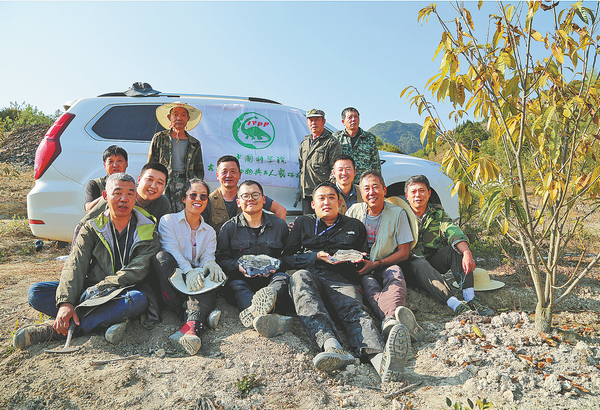

"The extraordinary diversity, unique vertebrate composition, and paleoenvironment strongly indicate that this locality documents a specific terrestrial fauna, which we have named Zhenghe Fauna," says Zhou Zhonghe, who is attached to the Beijing institute, and co-author of the study.
In situ radioisotopic dating and stratigraphic surveys constrain Zhenghe Fauna to the period between 150 and 148 million years ago, which makes Fujianvenator one of the stratigraphically youngest, and geographically southernmost members of Jurassic avialans, Zhou says.
The discovery of Zhenghe Fauna opens a new window into the Late Jurassic terrestrial ecosystem, and the joint research team from the IVPP and FIGS plan to continue their exploration of Zhenghe and nearby areas.
Looking back on the period, Wang is thankful for his team.
"Everyone comes from different backgrounds with different personalities and habits. You can imagine how challenging it can be for a team of fifteen or more people to work and live together for over a month," Wang says.
"Some colleagues were experienced in fieldwork, and they always found ways to cheer the team up when we were frustrated."
Contact the writer at yangfeiyue@chinadaily.com.cn